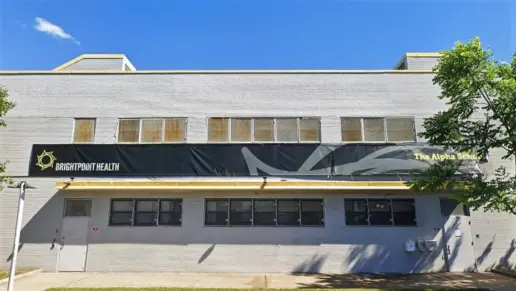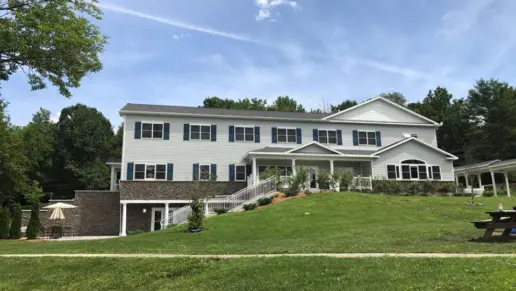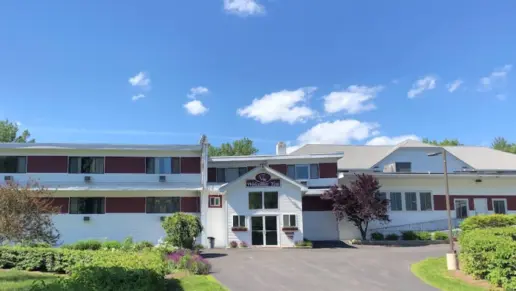I love this place with all my heart, it helped me love myslef and find who i really am, the staff are amazing especially megan and tyree
About Credo Community Center – The Farm
Credo Community Center - The Farm is a dual diagnosis treatment center in Evans Mills, New York for adolescent and young adult men ages 16 to 20. Credo offers medication assisted treatment, inpatient programs, and aftercare services that ensure individuals receive the appropriate level of support.
At Credo Community Center clients may be eligible for medication assisted treatment to ease withdrawal pains and reduce cravings. FDA approved prescriptions, such as methadone and buprenorphine, may be administered as needed by licensed clinicians to prevent relapse.
The inpatient program lasts up to 12 months. Clients participate in a farm community, including equine therapy, outdoors therapy, and daily chores. In addition, clients engage in traditional therapy sessions, relapse prevention strategies, holistic therapies, and referrals to additional treatment options.
Credo also provides treatment for co-occurring mental health disorders alongside substance use disorders. Skilled professionals provide individual therapy, psychiatric evaluations, and family therapy.
Credo offers self pay and financing options. The center accepts Medicaid and may be in network with providers such as Aetna, Beacon, BlueCross/BlueShield, Cigna, Humana, Optum, and Wellpoint.
Facility Overview
Latest Reviews
Rehab Score
Accepted Insurance
Other Forms of Payment
Medicaid is a state based program that helps lower-income individuals and families pay for healthcare. Medicaid covers addiction treatment so those enrolled can use their coverage to pay for rehab. When a program accepts Medicaid the client often pays very little or nothing out of their own pocket.
Private insurance refers to any kind of healthcare coverage that isn't from the state or federal government. This includes individual and family plans offered by an employer or purchased from the Insurance Marketplace. Every plan will have different requirements and out of pocket costs so be sure to get the full details before you start treatment.
Self-pay involves paying for treatment out of your own pocket. You can use savings or credit, get a personal loan, or receive help from family and friends to fund your treatment. If you don't have insurance or your insurance plan doesn't cover a specific program, self-pay can help ensure you still get the care you need.
Financial aid can take many forms. Centers may have grants or scholarships available to clients who meet eligibility requirements. Programs that receive SAMHSA grants may have financial aid available for those who need treatment as well. Grants and scholarships can help you pai for treatment without having to repay.
Sliding scale payments are based on a client's income and family size. The goal is to make treatment affordable to everyone. By taking these factors into account, addiction recovery care providers help ensure that your treatment does not become a financial burden to you or your family, eliminating one barrier to care.
Military members, veterans, and eligible dependents have access to specific insurance programs that help them get the care they need. TRICARE and VA insurance can help you access low cost or no cost addiction and mental health treatment. Programs that accept military insurance often have targeted treatment focused on the unique challenges military members, veterans, and their families face.
Addiction Treatments
Levels of Care
Treatments
The goal of treatment for alcoholism is abstinence. Those with poor social support, poor motivation, or psychiatric disorders tend to relapse within a few years of treatment. For these people, success is measured by longer periods of abstinence, reduced use of alcohol, better health, and improved social functioning. Recovery and Maintenance are usually based on 12 step programs and AA meetings.
When you choose drug rehab in New York, you'll participate in a variety of treatments that are designed to help you live a drug-free lifestyle. Common methods of treatment include group, individual, and family counseling, medication management, nutrition, exercise, and management of co-occurring mental health disorders.
The Farm’s LMSW provides assessment and treatment for mental health disorders, under the supervision of the Clinical Director and Medical Director. Individual and group counseling are provided to clients with symptoms of co-occurring mental health and chemical dependency disorders. Residents are also treated on-site by a psychiatrist for those participating in medication therapy.
Opioid rehabs specialize in supporting those recovering from opioid addiction. They treat those suffering from addiction to illegal opioids like heroin, as well as prescription drugs like oxycodone. These centers typically combine both physical as well as mental and emotional support to help stop addiction. Physical support often includes medical detox and subsequent medical support (including medication), and mental support includes in-depth therapy to address the underlying causes of addiction.
Substance rehabs focus on helping individuals recover from substance abuse, including alcohol and drug addiction (both illegal and prescription drugs). They often include the opportunity to engage in both individual as well as group therapy.
Programs

Clinical Services
Cognitive Behavioral Therapy (CBT) is a therapy modality that focuses on the relationship between one's thoughts, feelings, and behaviors. It is used to establish and allow for healthy responses to thoughts and feelings (instead of unhealthy responses, like using drugs or alcohol). CBT has been proven effective for recovering addicts of all kinds, and is used to strengthen a patient's own self-awareness and ability to self-regulate. CBT allows individuals to monitor their own emotional state, become more adept at communicating with others, and manage stress without needing to engage in substance abuse.
Family involvement in chemical dependency treatment can have a positive impact on the effectiveness of treatment for clients. Letter writing is the primary form of communication between residents and family members; phone calls are limited and meant to be used therapeutically. Family Orientation Sessions are required before family may visit their resident. These sessions are schedule Tuesday through Thursday. Family seminars are held several times a month on a week day; prior sign up is required.
Group therapy is any therapeutic work that happens in a group (not one-on-one). There are a number of different group therapy modalities, including support groups, experiential therapy, psycho-education, and more. Group therapy involves treatment as well as processing interaction between group members.
In individual therapy, a patient meets one-on-one with a trained psychologist or counselor. Residents receive at least two individual and two group counseling session per week, for at least 45 minutes each. These sessions are conducted by primary and specialty counselors, and follow the goals as they appear on each resident’s treatment plan. Residents are also encouraged to seek out any counseling staff for additional counseling sessions as they deem necessary, and to feel free to have conversations with staff at any point during programming.
Life skills trainings involve all the skills a person must have in order to function successfully in the world. At least one time per week all residents engage in a formal class intended to increase their vocational skills. They also participate in daily chores to maintain the cleanliness of the facility, including the barn, and prepare all of the meals for themselves and staff. Residents learn important vocational skills while participating in the overall care of the farm/barn; this includes cleaning the barn, caring for animals, planting gardens, lawn care/snow removal, etc.
The Farm is a tobacco-free campus and they offer smoking cessation education opportunities in both individual and group settings, as is ordered through the treatment plan. Though some residents do not plan to remain abstinent from tobacco products indefinitely, the physical and psychological withdrawal while in treatment can be intense. They encourage regular discussion with counselors and medical staff to manage symptoms of nicotine dependence. Nicotine replacement is an option for some residents, as prescribed by the program’s medical personnel.
Nutrition therapy, aka medical nutrition therapy (MNT), is a way of treating physical, emotional, and medical conditions through diet. Specific dietary plans are designed by professional nutritionists or registered dietitians, and patients follow them in order to positively affect their physical and mental health.
Trauma therapy addresses traumatic incidents from a client's past that are likely affecting their present-day experience. Trauma is often one of the primary triggers and potential causes of addiction, and can stem from child sexual abuse, domestic violence, having a parent with a mental illness, losing one or both parents at a young age, teenage or adult sexual assault, or any number of other factors. The purpose of trauma therapy is to allow a patient to process trauma and move through and past it, with the help of trained and compassionate mental health professionals.
Amenities
-
Private Setting
Staff
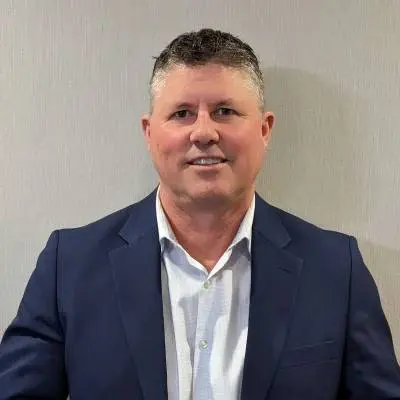
President & Chief Executive Officer
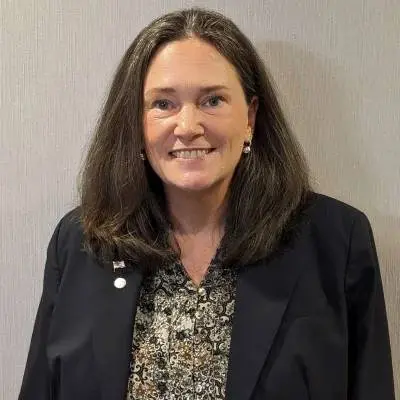
Chief Operating Officer
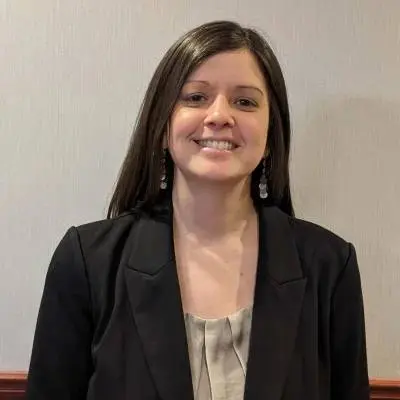
Chief Strategy Officer
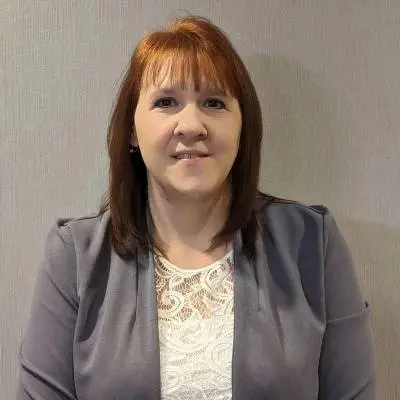
Chief Human resources Officer
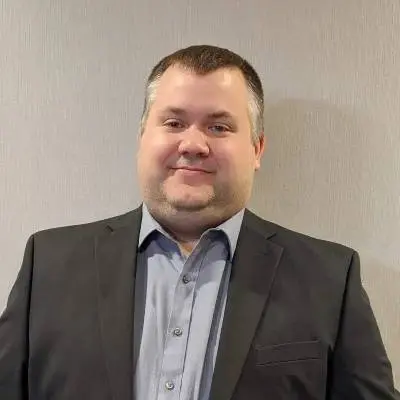
Chief Financial Officer
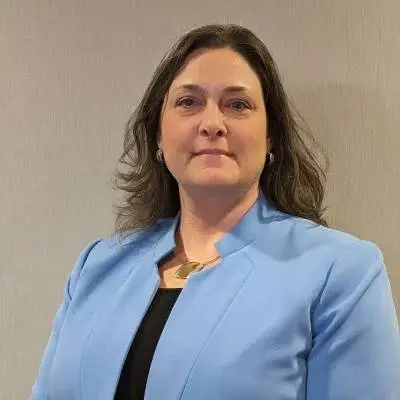
Chief Behavioral Health Officer
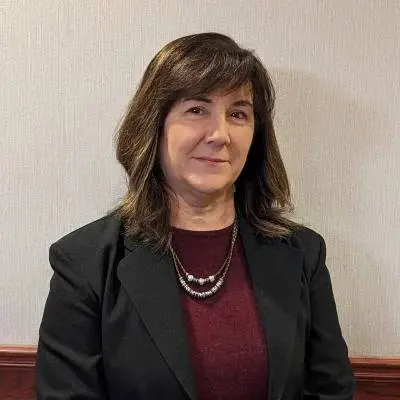
Chief Compliance Officer
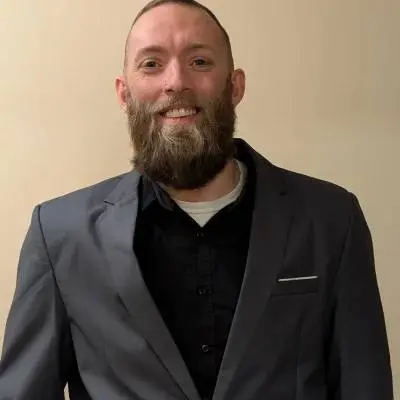
Chief Information Officer
Contact Information
24180 County Route 16
Evans Mills, NY 13637






